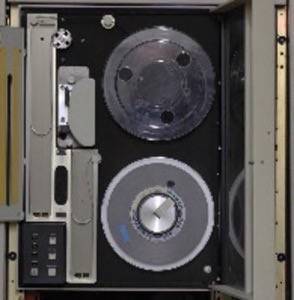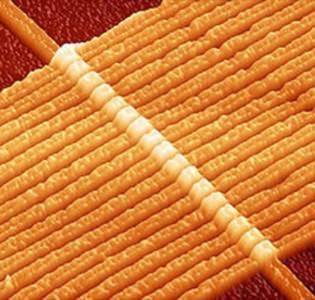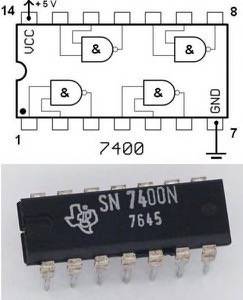We are, in a manner of speaking, getting used to being surprised by both the pace of change and the face of change. Change comes more and more rapidly on its predecessors’ heels as we see desktops supplanted by laptops and laptops replaced by smart phones. But the corollary to all this change is an unspoken expectation that the nature of computing itself is not changing. Two recent developments in chip design are shaking that expectation.

The “memristor” from Hewlett-Packard and Hynix; and the “nanoelectromechanical switches” from DARPA and Case Western Reserve University hint at a future in which the nature of computing itself may change as much as the interface.
Drastically reducing the energy cost of computing

The memristor simplifies and miniaturizes chip technology to an unprecedented degree. Its development may tame the current cancer of data the last 20 years have afflicted us with. Most retail users of data know this explosion of data in terms of the confusion they experience when trying to search for relevant information in a sea of mere facts. But this face of the data explosion is the tip of an iceberg. With the ability to capture and organize data in exponentially smaller fields, we may wind up harnassing, rather than being swamped, with what we know.
Hynix and HP are working jointly to “develop new materials and process integration technology to transfer the memristor technology from research to commercial development in the form of Resistive Random Access Memory (ReRAM).”
The memristor chip will accommodate a hard drive’s worth of information. Perhaps even more important than the continuance of Moore’s Law is the fact that a memristor requires a small percentage of a traditional chip’s energy to function. In an era possibly driving toward peak oil, this is no small accomplishment. Imagine a future of computing where the vast amounts of currently inaccessible data is at your fingertips and the energy (and therefor financial) requirement for getting at it is infinitesimal compared to today’s demand. An e-reader for every citizen of the developing world and a laptop for every child seem much less pie in the sky in such a world.
Too tough to die

Using a series of nanoscale levers instead of transistors, the mechanical inverter developed by DARPA and Case Western solves another problem. When traditional chips are exposed to high heat, they kick the bucket. Current electronics is very fragile, as anyone who’s ever dropped a laptop or mobile phone on the pavement can attest. Large-scale computing can put hardware in much more demanding environments than the sidewalk. The mechanical inverter (the inverter is primary element of the logic gate, the brain cells of the computer) replaces the transistors-on-silicon construction of the traditional chip with something out of a James Blaylock novel. The switches on the inverter are as tangibly physical and mechanical as a doorknob and have put some in mind of the old mechanical computer known as a Babbage engine.
Unlike even the most sophisticated Victorian science, however, the nanoelectromechanical switches are small enough for current computer chips. They move under electrostatic attraction at 550 °C 550,000 times a second, computing once each time. Development head Dr. Te-Hao Lee told New Scientist he expected eventual switching speeds of a billion per second, more than enough for control systems applications, despite being appreciably slower than PCs. These inverters also avoided any measurable current leakage.
“Omnia mutantur, nos et mutamur in illis.”
It is not so much these specific innovations that we should note, though they are interesting and exciting. It’s more the revelation that, although we’d be fools to bank on a future that solved the problems of the present, we’d be equally foolish (albeit all too human) to take an expectation of inertia as our default position. In other words, even as nothing is guaranteed, still, anything is possible.
Or, as the 16th century Latin poet Matthias Borbonius says above: “Everything is changing, and we are changing with it.”

















